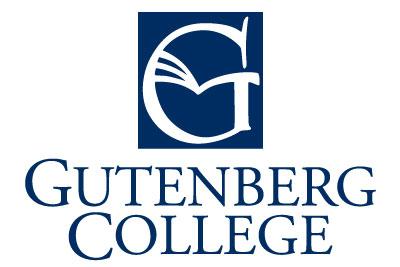Meeting the Demands of the Market: Skills or Credentials?
A conversation with Dr. Eliot Grasso, Vice President, Gutenberg College
The College Discovery Tool
An online tool to help your child answer the question, “What kind of college should I go to?”
Note: You must enter your name and email to see the results.
Pathways to College Worksheet
A worksheet (PDF) to help your child develop a clear picture of what they’re walking into and why and a sense of personal ownership for their life and education. Print this out and work through it together around the dinner table!
More Resources
Find links to the U.S. Bureau of Labor Statistics, employment websites, educational resources, and more.
Note: Read more specifically about the “ROI of a Liberal Arts Education” here.
Deciding what to do after high school is about more than picking a vocation or a college—it’s about guiding your child into one of the most formative stages of life with a clear understanding of purpose. Pursuing answers to the following questions together can help provide parents and young adults with a solid starting point for making decisions about what path they will take.
1. Should I Go to College? Beyond the “Myth”
Q: Is college value a myth?
A: The common college myth—go to the best school, get a good job, live happily ever after—leaves out deeper questions about meaning, calling, and spiritual formation.
Let’s take the college myth in reverse order and ask first, is the point of life to live happily ever after? Russian author Aleksandr Solzhenitsyn said:
If … man were born only to be happy, he would not be born to die. Since his body is doomed to death, his task on earth evidently must be more spiritual: … not the search for the best ways to obtain material goods and then their carefree consumption. It has to be the fulfillment of a permanent, earnest duty so that one’s life journey may become above all an experience of moral growth: to leave life a better human being than one started it.
Education is a holistic transformation for the better—the cultivation of virtue and wisdom—achieved through a sustained inquiry into what is true, good, and beautiful. It’s for people created in the image of God, who, while sinful, can be redeemed by His grace. A college education can provide many benefits if chosen well.
Whether the path after high school is wide open, or your child knows they want to pursue a specific vocation, the ultimate goal should be the same: to live a life that is pleasing to God. There is nothing of greater value.
Q: Why has college become so much more expensive?
A: There’s a lot of debate these days about whether college is worth the money. Over the last 25 years or so, the cost of college tuition has increased dramatically and has outpaced inflation 4.5 times over. Has college become more valuable? Has education become rarer? No to both. Sophisticated marketing techniques inflate name brand recognition— a fictitious form of value creation—and impact cultural assumptions about the value of college. They imply deliverables that college degrees can’t really promise. Colleges have been taking advantage of that and have increased tuition as much as humanly possible in response.
We want to look at the difference between a college education and a college degree, a college learning experience versus a piece of credentialing.
Q: Is a degree more important than actual skills?
A: I would say that actual skills are ultimately more important than a piece of paper. For previous generations, a college degree implied that you had received certain kinds of information from the hands of a specialist that were otherwise hard to get. That is no longer always the case—information can be acquired at the low cost of an internet connection.
As a college teacher of 19 years, I want to propose an alternative and more fundamental perspective, which is that education is created by the teachers in the room and not by branding and marketing tactics. What ultimately matters most—and the value of your education— is what you’re asked to practice and the skills you develop in doing so.
We can think about education like a game and apply the practice principle. The game is life, the athlete is the student, the trainer is the teacher, and the equipment is the curriculum.
You become what you practice. If all these work together to help you practice transferable, life-transforming skills—like critical thinking, collaboration, godliness, and moral reasoning—you’ll benefit for a lifetime, especially when those skills can withstand what will likely be huge disruptions in our economy and job market. Success is about preparing to play well, not just winning, because winning is often outside the control of the team.
2. ROI, Jobs, and the Changing Workplace
Q: Does a degree guarantee you a job in your field?
A: Not necessarily—only 27% of grads work in a field related to their major. That’s not very high, especially given the amount of debt that many students accrue. 33% of college students change their major at least once or twice. 41% of grads work in jobs that don’t require degrees at all. Millennials change jobs about four to seven times before age 30. If you look at the real relationship between investment and outcome, it can seem pretty weak.
Q: What do most high school grads say about why they want to go to college?
A: These answers aren’t too surprising—85% want a better job, 78% want career-specific training, and 71.8% want to earn more money.
Q: What skills do employers value most?
A: In a study from the Strata Institute, 93% of employers say that a demonstrated capacity to think critically, communicate clearly, and solve complex problems is more important than a candidate’s undergraduate major. More than 9 in 10 cite ethical judgment and integrity, intercultural skills, and the capacity for continued learning. 80% agree that regardless of their major, students should acquire broad knowledge in the liberal arts and sciences. More than 75% say they want more emphasis on five key areas:
• Critical thinking
• Complex problem solving
• Communication
• Applied knowledge in real-world settings
• Capacity for continued learning
Q: Why emphasize adaptability?
A: We’re currently undergoing what sociologists today are calling the fourth industrial revolution. They predict that about 85% of jobs that will exist in 2030 don’t exist yet. The model that was dominant in terms of education outcome up until about the year 2000 was this: specialize early, pay a bunch of money up front, and get a high paying job upon completion. Given the stats I just mentioned, it would seem that’s not really materializing the way many Americans thought it would.
With the advent of AI and other kinds of industries that are radically transforming the landscape of American employment, one of the most important questions should be, “How does my education prepare me for the unknown?” More and more, leaders in AI and business are repeating this message: In the future, job security will depend on the ability to adapt faster than AI reshapes your industry.
A broad liberal arts education builds “human skills” that transfer between industries and are hard for AI to replace, things like emotional intelligence, cognitive flexibility, and humane collaborative leadership.
Q: What will be my Return on Investment (ROI)?
A: For the Christian, college ROI can’t just be about jobs and salaries. Parents should weigh tangible returns like income alongside intangible ones like wisdom, ethical judgment, meaning and fulfillment, and adaptability.
When it comes to ROI, what is the research showing? The population of the U.S. is about 331 million. About 135 million of those have graduated from college. That’s a huge percentage: 40%. Today, on average, the college grad earns about $1,500 more per month than the non-grad. The average student debt is about $30,000. And that’s a low conservative estimate. About 28% of grads don’t work in their fields because there aren’t enough jobs in those fields. And the following sorts of companies are not necessarily interested in college degrees at all: Google, Nordstrom, Bank of America, Ernst and Young, IBM, and Apple.
27% of adults with at least a bachelor’s degree say they don’t have the education or training they need to get ahead at work. 77% are in jobs they say require higher levels of analytical skills.
About 35% of future job openings will require at least a bachelor’s degree. About 30% of the job openings will require some college or an associate’s degree, and 36% of the job openings will not require education beyond high school. That’s a fairly significant percentage.
If we just look at lifetime outcomes for salary in the short term, we’ll see that over the first 10 years after college graduation, STEM degrees and even community colleges tend to do better than liberal arts degrees economically. But if you take the long-term, 40-year view, you’ll see that a broad liberal arts education actually competes well in terms of salary. The median ROI of liberal arts colleges is nearly $200,000 higher than the median for all colleges. Further, the 40-year median ROI of liberal arts institutions is close to that of four-year engineering and technology related schools, and four-year business and management schools.
And salaries aside, it strikes me that the Christian ought to be taking into account not 10 years or 40 years, but all of eternity. Of anyone, the Christian ought to be thinking long term and to draw near to education that will prepare one for eternity.
3. Types of Colleges: Which Is the Best Fit?
Q: What are the main types of colleges?
A: There are three broad categories of colleges, each with a different focus, approach, and outcome. Matching your child to the right type is key. The resources above might help.
1. Vocational Certification College — Task-oriented, hands-on training (e.g., welding, nursing) often leading to certification and immediate employment.
2. Career Credentialing College — Traditional four-year university with career-focused majors, electives, and general education. These rely more on lectures and lead to a degree in a specific field.
3. Wisdom College — Broad, integrated curriculum (often classical/liberal arts) designed to build wisdom and moral discernment, critical thinking, a coherent worldview, and adaptability for life. Wisdom colleges often use Socratic, discussion-based methods. ✤
Photo courtesy of Unsplash.

DR. ELIOT GRASSO serves as Vice President of Gutenberg College, where he teaches courses in music, art, philosophy, history, literature, and hermeneutics. He has been teaching in higher education in Europe and North America since 2006. He is dedicated to training teachers in Socratic-style discussion, and engages students with the big questions of life through the classics of the Western tradition. Learn more at eliotgrasso.com.





